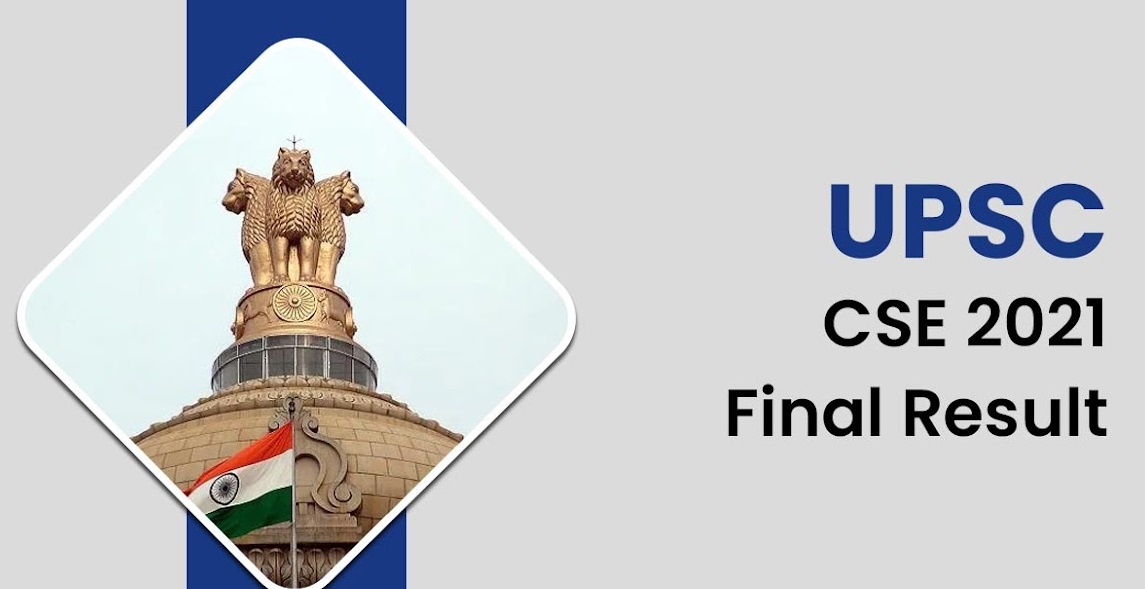
How to Start Preparing for the UPSC Civil Services Examination?
Civil Services Examination is a dream of many aspirants. An enormous amount of diligence and consistency are needed to succeed in such a fiercely competitive exam. The reason why you want to work as a civil servant should be evident to you, and your ability to navigate this path more easily depends on how clear your goal is.
Before starting your preparation for any exam, you should first go through the syllabus, exam pattern and previous years’ question papers. For instance, if you want to prepare for the SBI Probationary Officer exam, then you should first go through the SBI PO syllabus given in the notification and past papers. This will assist you in gaining a sense of the exam format and the kinds of questions that will be asked.
UPSC aspirants can read through the important strategies and suggestions provided below to begin studying for the Civil Services Examination.
Tips to Start UPSC CSE Preparation
A beginner will always have many questions in their mind regarding the study plan and preparation strategy to crack the Civil Services Examination. It is essential to have clarity in the beginning so that aspirants make fewer mistakes during the preparation. Remember that there is no foolproof plan or strategy to crack the exam. Aspirants should keep in mind the following points while starting the preparation.
● Go through the syllabus and previous years’ question papers
Every aspirant should understand the various phases of the examination, exam pattern, syllabus and nature of questions asked in different phases of the exam etc. Knowing the syllabus is essential as it helps streamline the preparation. Going through the previous years’ question papers is extremely vital as it identifies the areas that a candidate should concentrate on.
● Read newspapers daily
Reading newspapers is very important and an essential part of UPSC CSE preparation. Newspapers not only help in understanding the current events that are happening in the state, India and the world, but they also aid in comprehending various aspects of an issue.
Candidates should read at least one newspaper daily. They don’t have to read each and every page but primarily focus on national and international news, important state news, news related to important schemes, science and technology, environment etc.
Aspirants will be able to distinguish between what is crucial and what is not once they have read through the syllabus and, in particular, the question papers from past years.
A list of important newspapers is given below. Aspirants can read one or two newspapers every day, but they should not spend too much time on them.
| List of Important Newspapers for UPSC CSE Preparation | |
| 1 | The Hindu |
| 2 | The Indian Express |
| 3 | Economic Times |
| 4 | Business Line |
| 5 | Mint epaper |
● Read relevant magazines and journals
Reading important magazines is also an important part of UPSC CSE preparation. Candidates should read only important and relevant articles from these magazines. Reading over the exam syllabus will make it simple to determine what to read and what not to. A list of important magazines/journals is given below.
| List of Important Magazines/Journals for UPSC CSE Preparation | |
| 1 | Economic and Political Weekly (EPW) |
| 2 | Yojana |
| 3 | Kurukshetra |
| 4 | Down To Earth Magazine |
| 5 | Frontline |
● Refer to authentic resources available online
There is an abundance of information available online. It could be challenging for aspirants to sort through the wealth of online information. Therefore, it is important that aspirants stick to limited resources and use reliable resources only. A list of important websites that candidates can refer to while preparing for the UPSC CSE is given below.
| List of Important Websites for UPSC CSE Preparation | |
| www.pib.nic.in | www.prsindia.org |
| darpg.gov.in/arc-reports | www.ncert.nic.in |
| www.vikaspedia.in | www.arthapedia.in |
| www.rbi.org.in | www.ccrtindia.gov.in |
| www.indiabudget.gov.in | www.ndma.gov.in |
| www.idsa.in | www.downtoearth.org.in |
| www.niti.gov.in |
● Start with NCERTs
NCERT textbooks are a treasure trove of important information. Every aspirant who wants to start preparing for the Civil Services Examination must start with NCERT textbooks. There is no substitute for NCERT textbooks. A beginner must finish studying the NCERT books and then refer to advanced study materials.
The best course of action for candidates is to begin with the Class 6 textbooks and then move on to the others. A list of NCERT textbooks for various subjects is given in the table below. Aspirants should read these textbooks carefully and make short notes wherever necessary. When it comes to Classes 11 and 12 science textbooks (also applies to sociology and psychology), candidates should read only relevant chapters.
Candidates should thoroughly research all of the key concepts, terminologies, and information found in the NCERT textbooks. Merely reading the textbooks and learning the facts will not suffice. Aspirants must be able to connect static and dynamic information appropriately.
For guidance on what to study and what not to study, candidates should review the syllabus and question papers from past years.
| List of Important NCERT Textbooks to Prepare for UPSC CSE | ||
| S.No. | Subject | Name of Books |
| 1 | History | NCERT Class VI – Our Past – INCERT Class VII – Our Past – IINCERT Class VIII – Our Past IIINCERT Class IX – India and the Contemporary World – INCERT Class X – India and the Contemporary World – IINCERT Class XI – Themes in World HistoryNCERT Class XII – Themes in Indian History – INCERT Class XII – Themes in Indian History – IINCERT Class XII – Themes in Indian History – III |
| 2 | Art and Culture | NCERT Class XI – An Introduction to Indian ArtNCERT Class XI – Living Craft Traditions of India |
| 3 | Geography | NCERT Class VI – The Earth Our HabitatNCERT Class VII – Our EnvironmentNCERT Class VIII – Resource and DevelopmentNCERT Class IX – Contemporary India – INCERT Class X – Contemporary India – IINCERT Class XI – Fundamentals of Physical GeographyNCERT Class XI – India – Physical EnvironmentNCERT Class XII – Fundamentals of Human GeographyNCERT Class XII – India – People and Economy |
| 4 | Polity | NCERT Class IX – Political Science: Democratic Politics Part – INCERT Class X – Political Science: Democratic Politics Part – IINCERT Class XI – Political Science: Indian Constitution at WorkNCERT Class XI – Political Science: Political TheoryNCERT Class XII – Political Science I: Contemporary World PoliticsNCERT Class XII – Political Science II: Politics in India since Independence |
| 5 | Economics | NCERT Class IX – EconomicsNCERT Class X – Understanding Economic DevelopmentNCERT Class XI – Indian Economic DevelopmentNCERT Class XII – Introductory MicroeconomicsNCERT Class XII – Introductory Macroeconomics |
| 6 | Science | NCERT Class VINCERT Class VIINCERT Class VIIINCERT Class IXNCERT Class XNCERT Class XI – Chemistry NCERT Class XI – BiologyNCERT Class XII – Chemistry Part INCERT Class XII – Chemistry Part II NCERT Class XII – BiologyNCERT Class XI – PhysicsNCERT Class XII – Physics |
| 7 | Indian Society | NCERT Class VI – Social Science: Social & Political Life INCERT Class VII – Social Science: Social & Political Life IINCERT Class VIII – Social Science: Social & Political Life IIINCERT Class XI – Sociology: Introducing SociologyNCERT Class XI – Sociology: Understanding SocietyNCERT Class XII – Indian SocietyNCERT Class XII – Social Change and Development in India |
| 8 | Ethics | NCERT Class 11 PsychologyNCERT Class 12 Psychology |
● Read advanced books and study materials
Once aspirants finish studying the NCERT textbooks, they can refer to other advanced study materials. A list of books that will be helpful for aspirants who plan to prepare for the UPSC Civil Services Examination is given in the table below. Aspirants should refer to one or two (maximum) textbooks for each subject. They should choose a book that covers all the important topics comprehensively.
| List of Important Textbooks to Prepare for UPSC CSE | ||
| S.No. | Subjects | Name of Books |
| 1 | Indian Polity | Indian Polity by M. LaxmikanthIntroduction to the Constitution of India by D.D. Basu |
| 2 | Indian Economy | Economic SurveyIndian Economy by Ramesh SinghIndian Economy by Nitin SinghaniaThe Indian Economy by Sanjiv VermaDatt and Sundaram’s Indian EconomyIndian Economy Key Concepts by Sankarganesh K. |
| 3 | History, Art and Culture, and World History | India’s Struggle for Independence by Bipan ChandraIndian Art and Culture by Nitin SinghaniaIndia after Independence by Bipan ChandraA Brief History of Modern India by Rajiv Ahir (Spectrum books)World History: Patterns of Interaction by McDougal LittellMastering Modern World History by Norman Lowe |
| 4 | Geography & Environment | Certificate Physical Geography by G. C. LeongWorld Atlas (Orient Black Swan)Geography of India by Majid HusainWorld Geography by Majid HusainEnvironment and Disaster Management by Tata McGraw Hill |
| 5 | Internal Security | Challenges to Internal Security of India – Ashok Kumar |
| 6 | International Relations | International Relations by Pushpesh Pant |
| 7 | Ethics | Ethics, Integrity and Aptitude for Civil Services Main Examination by Subba Rao and P.N. Roy ChaudaryLexicon for Ethics, Integrity & Aptitude for IAS General StudiesEthics Integrity Aptitude for Civil Services Examination by D.K. Balaji |
| 8 | Essay | Fundamentals of Essay and Answer Writing by Anudeep Durishetty |
| 9 | CSAT | Tata McGraw Hill CSAT ManualVerbal & Non-Verbal Reasoning by R. S. Aggarwal |
| 10 | English | Oxford English Grammar Course: Advanced by Michael Swan and Catherine WalterHigh School English Grammar and Composition by H. Martin and P. C. Wren |
● Limit your resources
It is crucial to limit the number of resources that one uses while preparing for the UPSC examination. Aspirants should focus on studying from a single textbook that covers all the topics, however, they can refer to another one if they can’t find material on a particular topic in the one they’re using.
Candidates should remember that if they refer to too many resources, they will not find sufficient time to revise the information. If candidates can’t review what they have studied, it will be a waste of time and effort.
● Write short notes
Wherever necessary, candidates should take brief notes. Taking short notes makes revising easier. It saves time, especially in the days leading up to the test.
Short notes need to be concise and unambiguous. These notes should only contain material that is pertinent and significant.
● Revise
Revision is key to cracking the CSE examination. Accumulating information becomes irrelevant if one can’t recollect them during the examination. Therefore, revising is essential and extremely important.
The UPSC CSE syllabus is extensive, making it nearly hard to remember all the important material during the exam without extensive revision. Therefore, candidates should prioritise revision in their study plan. It is best to revise once a week, and this should be done seriously.
● Take mock tests
Every CSE applicant should take practice exams under exam-like conditions. Mock exams aid a candidate in identifying their mistakes. It evaluates their performance and offers them critical advice on how to advance.
These are some of the points that every UPSC CSE aspirant should keep in mind while preparing for the examination.
Candidates should also remember that before starting their preparation, be it for the UPSC Civil Services Examination, SBI PO or other PSC examinations, they should understand the exam pattern and the nature of questions asked in the examination. This will help them in devising an appropriate study plan and strategy to ace the examination.
Every competitive examination has its own challenges. However, candidates can face these challenges by devising a realistic study plan, meeting deadlines, revising multiple times and remaining consistent throughout their preparation.




